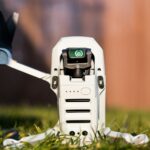Leveraging IoT Data for Enhanced ERP Functionality
The Potential Benefits of IoT and ERP Integration
Integrating IoT data with ERP systems in Swiss manufacturing companies offers significant benefits, enhancing operational efficiency and enabling data-driven decision-making. By combining the real-time data capabilities of IoT with the comprehensive management features of ERP systems, manufacturers can gain deeper insights into their production processes, asset utilization, and overall operational performance. This integration not only streamlines workflows but also provides a foundation for predictive analytics, allowing Swiss manufacturers to anticipate issues before they escalate into costly disruptions.
One of the primary benefits of integrating IoT data with ERP systems is the ability to monitor equipment performance and maintenance needs in real time. For Swiss manufacturers, who operate in a highly competitive and precision-driven market, this capability is invaluable. IoT sensors can track various parameters such as temperature, vibration, and machine usage, feeding this data directly into the ERP system. This continuous stream of information allows maintenance teams to identify potential failures early, schedule preventive maintenance, and avoid unplanned downtime. The result is improved equipment reliability, reduced maintenance costs, and enhanced production efficiency.
Additionally, the integration of IoT data with ERP systems enhances inventory management by providing real-time visibility into stock levels and material flow. For example, IoT sensors can monitor the movement of raw materials and finished goods throughout the production facility, updating the ERP system with precise inventory counts. This level of accuracy helps manufacturers optimize their inventory levels, reducing the costs associated with overstocking or stockouts. By having a clear view of inventory in real time, Swiss manufacturers can better align their production schedules with demand, improving customer satisfaction and operational efficiency.
Optimizing Production Processes with IoT-ERP Integration
ERP solutions integrated with IoT data enable Swiss manufacturers to optimize their production processes through enhanced monitoring and control capabilities. One of the most impactful applications of this integration is in the area of production line automation. By leveraging IoT sensors to gather data on every aspect of the production process, from machine performance to environmental conditions, ERP systems can analyze this data to identify inefficiencies and suggest improvements. This data-driven approach allows manufacturers to fine-tune their operations, reducing waste, increasing output, and maintaining the high quality that Swiss manufacturing is known for.
Moreover, IoT-ERP integration facilitates better quality control by providing real-time feedback on product quality at every stage of the manufacturing process. IoT devices can capture data on critical quality parameters, such as temperature, pressure, and humidity, which are then analyzed within the ERP system to ensure compliance with quality standards. This proactive approach to quality management helps Swiss manufacturers detect deviations early, reduce the likelihood of defects, and maintain consistency in product quality. By integrating IoT data with ERP systems, companies can build a more responsive and agile quality control process, ultimately enhancing their reputation for excellence.
Another significant advantage of IoT-ERP integration is the ability to perform advanced analytics and predictive modeling. For Swiss manufacturers, who often deal with complex and customized production processes, the ability to predict outcomes based on real-time data is a game-changer. By analyzing historical and real-time data from IoT devices, ERP systems can identify patterns and trends that may indicate potential issues, such as bottlenecks or equipment failures. This predictive capability allows manufacturers to take corrective actions before problems arise, minimizing downtime and ensuring that production targets are met.
Achieving Successful IoT-ERP Integration in Swiss Manufacturing
Strategies for Effective IoT-ERP Integration
Achieving successful IoT-ERP integration in Swiss manufacturing requires a strategic approach that involves careful planning, robust infrastructure, and a clear understanding of the business objectives. One of the first steps in this process is to conduct a comprehensive assessment of the company’s existing IoT and ERP capabilities. This assessment should identify the specific data points that need to be captured by IoT sensors and determine how this data will be utilized within the ERP system. By aligning the integration strategy with the company’s operational goals, Swiss manufacturers can ensure that the IoT-ERP integration delivers tangible benefits.
Another critical strategy for successful integration is to invest in scalable and compatible technologies. As Swiss manufacturing companies often operate in diverse environments with a wide range of equipment, it’s essential to select IoT devices and ERP systems that can work seamlessly together. This may involve choosing IoT sensors that are compatible with existing ERP platforms or opting for middleware solutions that can bridge the gap between disparate technologies. Scalability is also crucial, as the integration should be capable of growing with the company, accommodating new devices, data sources, and business requirements as needed.
Data security and privacy are also paramount considerations in IoT-ERP integration. With the increasing volume of data generated by IoT devices, ensuring that this data is securely transmitted, stored, and processed is essential. Swiss manufacturers should implement robust cybersecurity measures, such as encryption, secure communication protocols, and access controls, to protect sensitive data from unauthorized access and breaches. Additionally, compliance with data protection regulations, such as the Swiss Data Protection Act, should be a priority to maintain trust with customers and partners. By prioritizing security, companies can safeguard their operations while reaping the benefits of IoT-ERP integration.
Overcoming Challenges in IoT-ERP Integration
While the benefits of integrating IoT data with ERP systems are clear, Swiss manufacturers may face several challenges during the implementation process. One common challenge is the complexity of integrating data from multiple IoT devices with the ERP system. To address this, companies can utilize data integration platforms or middleware that facilitate the seamless flow of data between IoT devices and ERP systems. These platforms can standardize data formats, handle data cleansing, and ensure that the data is accurately mapped into the ERP system, reducing the complexity of integration.
Another challenge is managing the large volumes of data generated by IoT devices. As the number of connected devices increases, so does the amount of data that needs to be processed and analyzed. Swiss manufacturers should invest in advanced data analytics and storage solutions that can handle big data efficiently. Cloud-based ERP systems can offer scalable storage and processing capabilities, allowing companies to manage and analyze IoT data without the need for extensive on-premises infrastructure. By leveraging cloud technologies, manufacturers can ensure that their IoT-ERP integration remains efficient and scalable.
Change management is also a critical aspect of successful IoT-ERP integration. For Swiss manufacturing companies, adopting new technologies can involve significant changes to existing workflows and processes. It’s important to provide comprehensive training and support to employees, helping them understand how to use the integrated system effectively. By fostering a culture of innovation and continuous improvement, companies can encourage their teams to embrace the new technologies and fully leverage the benefits of IoT-ERP integration.
Conclusion: Unlocking the Potential of IoT-ERP Integration in Swiss Manufacturing
In conclusion, integrating IoT data with ERP systems offers Swiss manufacturing companies a powerful tool for enhancing operational efficiency, improving decision-making, and driving innovation. By leveraging real-time data from IoT devices, ERP systems can provide deeper insights into production processes, resource management, and quality control, supporting the high standards of Swiss manufacturing. Successful integration requires careful planning, investment in compatible technologies, and a focus on data security and change management. As Swiss manufacturers continue to embrace digital transformation, IoT-ERP integration will be a key enabler of their ongoing success and competitiveness in the global market.
—
#IoTIntegration #ERPSolutions #SwissManufacturing #DataManagement #IndustrialIoT #ERPImplementation #DigitalTransformation










